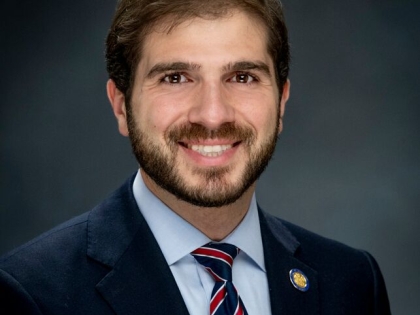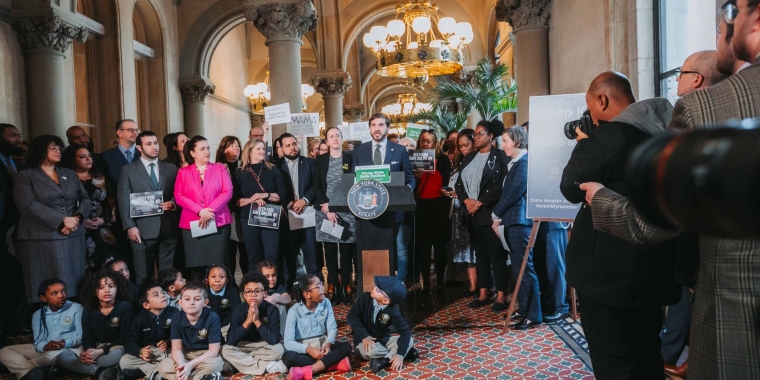
Senator Andrew Gounardes Introduces Bill to Protect Victims of Employment Discrimination
April 20, 2021
Brooklyn, NY -- Senator Andrew Gounardes proposed legislation to protect victims of employment discrimination from libel or defamation suits when they file internal complaints about the discrimination they are experiencing. Senator Gounardes led the charge on this reform to encourage victims of workplace discrimination to speak out without fear of a potential defamation suit.
The bill, S6034, ensures that victims of employment discriminaton are shielded from these suits when they’re based on protected allegations of unlawful discrimination made to the employer by the victims. This aims to protect victims of workplace discrimination based on a protected class covered under the New York State or New York City human rights law, or the federal anti-discrimination law. Victims of workplace discrimination such as sexual harassment will frequently find themselves the subjects of defamation suits for libel or slander as a result of filing internal complaints. These retaliatory tactics often get the victim to abandon their complaint, or significantly delay the investigation and judgement of the underlying harassment. These measures can also have a chilling effect and deter future victims at the worksite from coming forward.
This bill will eliminate these nefarious court actions by creating an absolute privilege for internal workplace complaints of discrimination, meaning that complainants cannot be sued for making protected allegations of discrimination. The bill is careful to include agents of employees and employers, since employees will frequently go through third parties to pursue defamation suits, like having a relevant supervisor, rather than the employer itself, sue the employee for defamation.
We’ve already seen real world cases that demonstrate why this legislation is necessary. In an April 2020 case, a group of defendants represented a client who had a gender and national origin discrimination case for harrasment, which was then viewed as retaliation against her employee and her supervisor. The defendants in this case sent out a letter stating that they wanted to seek to resolve the case before it was filed, and sent a draft copy of the complaint. After the employer acknowledged receipt of the complaint, and about a month later, they communicated that they were interested in mediating the case. The very next day, the individual defendant accused of harassment filed a defamation lawsuit saying that the victim’s claims in the draft complaint were defamatory and false, an action that this bill aims to eliminate. The court denied the motion due to the question of whether the letter was sent in good faith as a question of fact that needed to be determined later on. This bill will eliminate cases like these by outright banning defemation lawsuits claiming that allegations of discrimination are false or sent in bad faith.
“This is a victory for those who wish to come forward with their stories of harassment and discrimination,” said Senator Gounardes. “Bad actors in the workplace have far too often asserted this kind of power over their employees, and with this bill, employees will no longer be at a total disadvantage when they wish to come forward. No one should have to live in fear simply for calling out hostile practices when they see or experience them, so I’m proud to put forth this legislation and protect employees from these reprehensible retaliatory actions.”
“Retaliatory lawsuits are a bullying tactic,” said Marjorie Mesidor, President of the National Employment Lawyers Association of New York. “Often, Defendants are employers with greater means, access to more resources, and have direct control over most available witnesses. It has the effect of chilling the victim's speech. This bill will make sure that every discrimination or sexual harassment claim is based on the facts at hand without distraction.“
###
related legislation
Share this Article or Press Release
Newsroom
Go to NewsroomSen. Gounardes: Child Internet Safety Deal is Near
May 31, 2024



